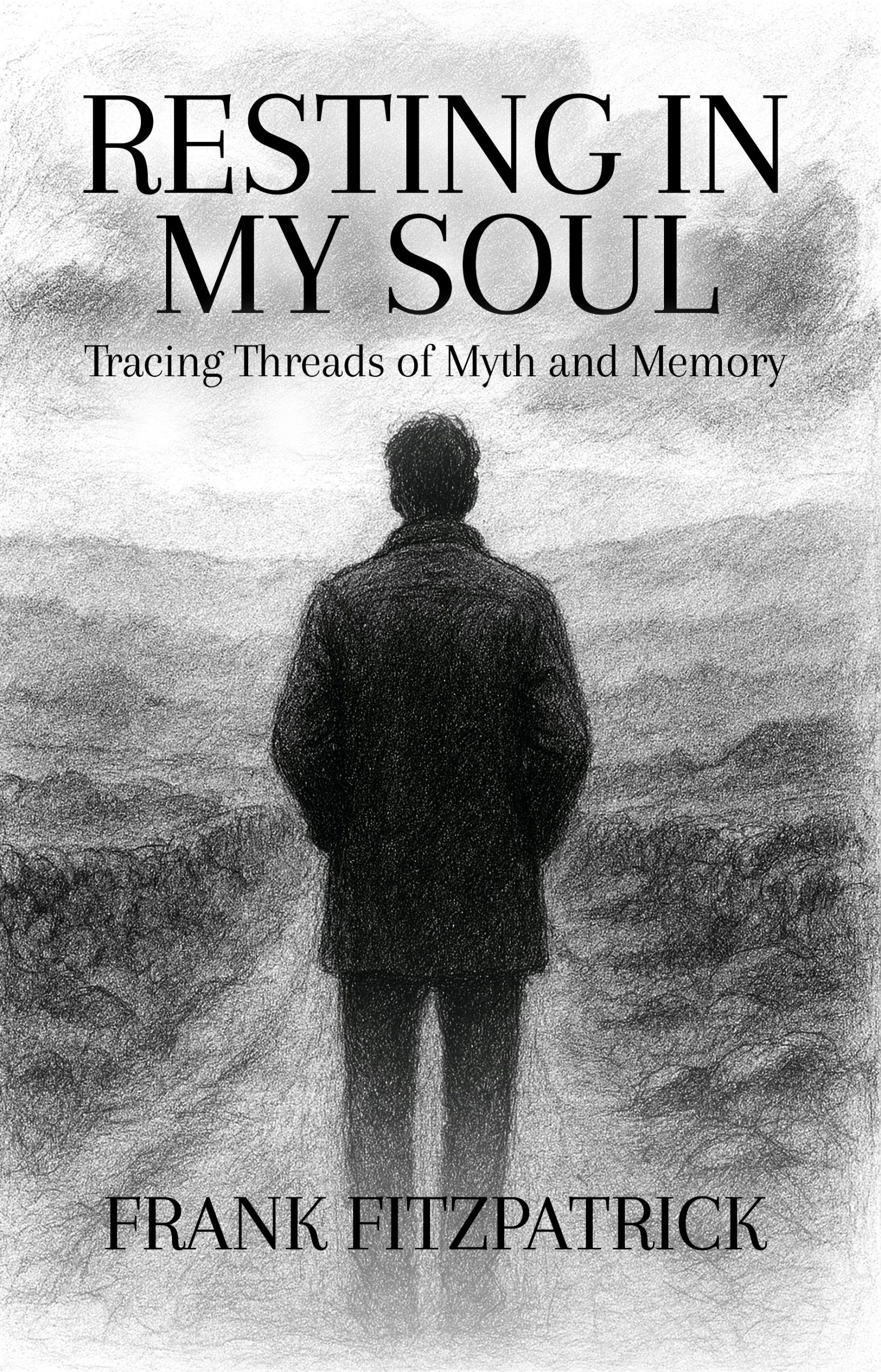In Resting in My Soul , Frank Fitzpatrick brings to life something often whispered about but rarely captured with such intimacy—the ancient Irish spirit. Through his protagonist, Conor McCarthy, Fitzpatrick doesn’t just tell the story of a man in crisis. He traces the story of a people whose identity is braided from rebellion, mythology, and memory. The result is a haunting, lyrical exploration of what it means to inherit not just a legacy—but a soul.

Conor’s journey begins with a quiet, almost ceremonial moment at his grandfather’s kitchen table. Amid a simple working-class meal, Granda shares a potent truth: the strength that led the Irish to rebel in 1916 came not from strategy or politics, but from something deeper—an ancient Irish spirit. “That’s what cracked their Empire,” he says. “Our ancient Irish spirit.”
That phrase echoes across the novel like a summons. It surfaces in dreams, visions, grief, and myth. Fitzpatrick never defines it outright, but through lived experience and landscape, he lets the spirit breathe. When Conor, still a child, has a mystical encounter at Poulnabrone, it isn’t spectacle—it’s initiation. A profound, transformative connection to Ireland’s mythic underworld, a reminder that in Irish storytelling, the land itself becomes a vessel of memory.
As Conor grows, the spirit becomes both compass and burden. His love for Emily—mercurial, brilliant, broken—collides with political unrest and personal tragedy. Her death and the later assassination of Finn, his blood brother and IRA Volunteer, fracture Conor’s world. The spirit that once stirred him now haunts him.
And yet, Fitzpatrick doesn’t offer myth as escape. He offers myth as reckoning. From the neolithic stones of the Burren to the shadowed cliffs of Inis Mór, Conor’s journey becomes a pilgrimage—through folklore, grief, and the echoes of Irish history. It culminates not in resolution, but in ritual: a soul offered, a sacrifice weighed, and a revelation that the ancient spirit was never gone—it was waiting.
Resting in My Soul stands in the tradition of Pearse, Yeats, and Tone, yet refuses to romanticise the past. It acknowledges how inherited ideals can uplift and undo. Fitzpatrick gives us not nostalgia, but nuance—myth not as museum, but as mirror. Myth does not protect him—it haunts him, demands answers, and at times drives him toward madness.
For Irish readers and the global diaspora alike, Resting in My Soul reminds us that our roots are not just genealogical—they are mythological.
Fitzpatrick’s prose is lyrical without indulgence, grounded yet full of wonder. He offers no easy closure—only the call to remember, to mourn, and to continue. Because Ireland is not just a place. It is a story. And within that story lives a spirit still very much alive.